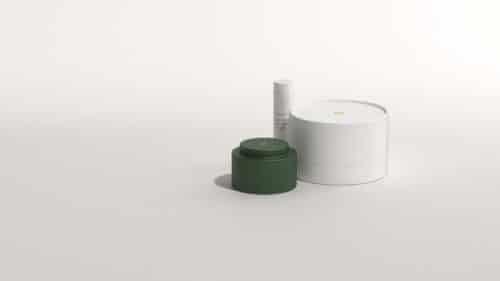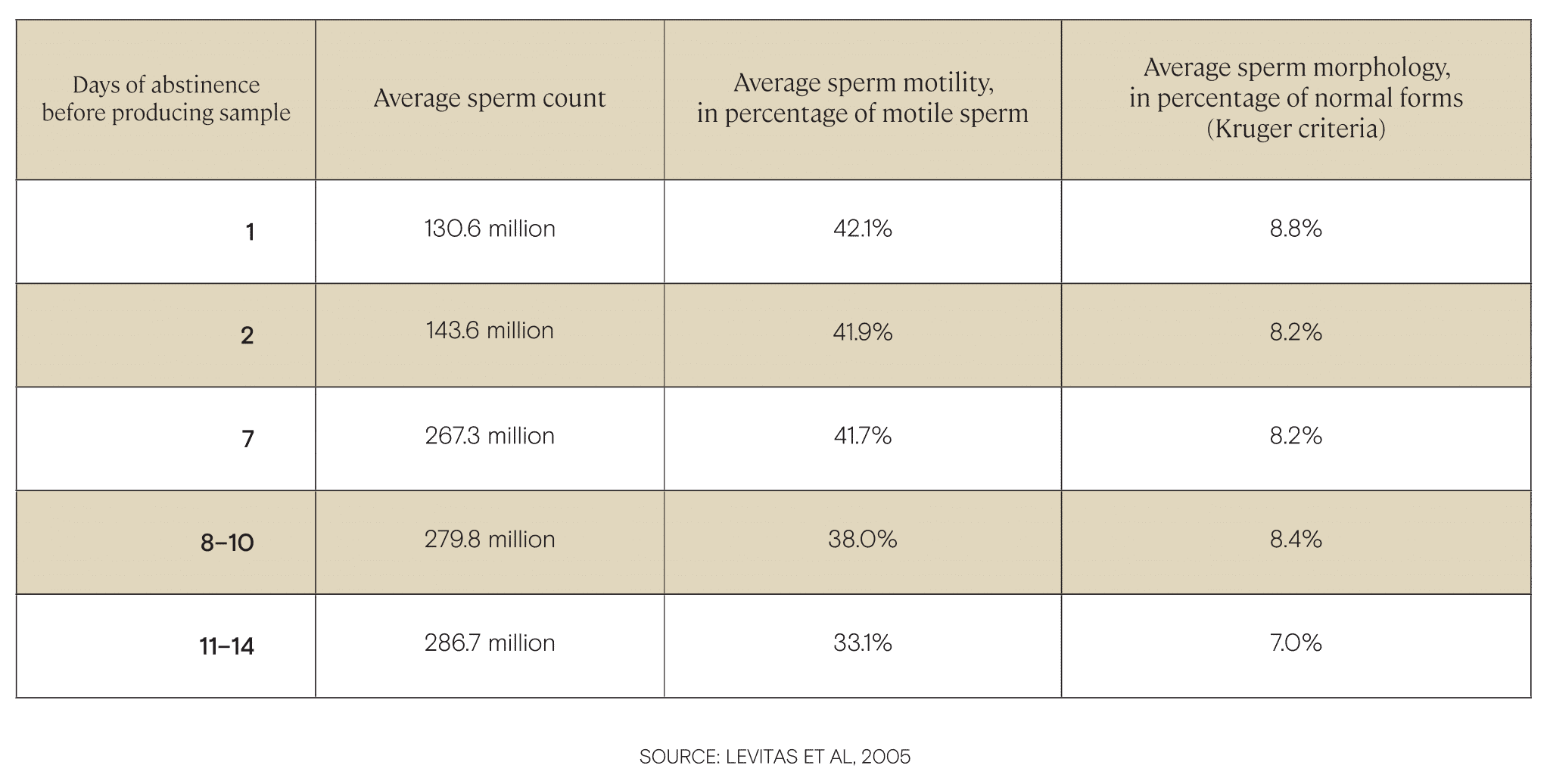How long sperm lives—inside the body or on other surfaces—is more than just a “fun fact.” It can actually impact your ability to conceive. Knowing that sperm live for 3–5 days in the female reproductive system, for example, means you could have sex several days before your partner ovulates and still result in a pregnancy.
Let’s explore how long sperm can live in different scenarios, and bust a few myths along the way.
How long does sperm last inside the female reproductive tract?
One widely believed myth is that sperm only survives for a very short time. Studies show that the average length of time that sperm live, once ejaculated or inserted into the female reproductive system, is around three days. This depends on where she is in her menstrual cycle, however—with just the right timing, stronger sperm could last up to five days.
A lot depends on the consistency of cervical mucus. During ovulation, changes in hormones alter the composition of cervical mucus, offering a protective effect that keeps sperm from drying out as quickly. Instead of its characteristic opaque texture, the mucus thins, providing just the right hosting environment to protect sperm without preventing movement.
The cervix also has another method for holding on to sperm around the time of ovulation: cervical “crypts,” small channels off the cervical canal. These crypts can actually serve as temporary storage spaces for sperm, which is then released over time, increasing the chances of fertilization.
What this means is that the “fertile window” is actually up to 5 days before a woman ovulates. It also means that you can have sex one day, and not fertilize the egg until days later—and in fact, this is the case with most pregnancies (as it’s rare to pinpoint the exact moment of ovulation). This is important to know whether you’re trying to conceive, or trying to avoid pregnancy.
How long does sperm live elsewhere?
Everyone knows the urban myth: two teenagers make out in a hot tub, and one ejaculates. The sperm swim through the water into the other’s vagina, and surprise! Pregnancy, even though they didn’t have sex.
Luckily, this isn’t reality. Sperm are highly unlikely to:
- swim that far. Sperm are not Olympic swimmers. The female reproductive system actually helps coax sperm along; without this assist, they’re not going far.
- survive in heat. Studies beginning around 1941 suggest temperatures higher than that of the human body affects sperm life and quality. While these studies measure scrotal temperature, we can conclude that heat itself has a negative effect on sperm’s viability.
So, in all likelihood, sperm ejaculated into a hot tub or bath would not live long enough to land inside a vagina—they’d survive only a few minutes.
Even in a room-temperature or body-temperature environment, sperm are unlikely to survive more than an hour or so outside the body. One of the most significant factors affecting sperm survival is humidity. Sperm are carried in semen, a fluid that nourishes and buffers them; once semen has evaporated, there’s nothing to protect sperm. Sperm that land on a dry surface would be lucky to last more than an hour.

Wait, then how does mail-in sperm testing work?
Mail-in sperm testing kits like Legacy’s use a transport media, an ingredient that’s clinically proven to protect sperm during overnight shipping. Additionally, our kits are insulated and extensively tested to ensure samples are not susceptible to sudden temperature changes in transit. These measures extend the lifespan of sperm outside the body to at least 48 hours, without significantly affecting the health of sperm.
Learn more about the science of at-home sperm testing.
How long does sperm last in the testicles?
Spermatogenesis, or the process of producing sperm, takes approximately 72 days, and it’s happening continuously in the testicles. Once they’re mature, sperm live in “storage” in the testicles—specifically, in the cauda epididymis—for as long as a few weeks. After that, they’re reabsorbed into the body.
But while in storage, sperm quality is decreasing fairly rapidly. Studies indicate that DNA fragmentation and mitochondrial damage increase after 5 days of abstinence, and motility decreases as well after about 7 days.

That’s why, although sperm counts increase a day or so after ejaculation, an extended period of abstinence isn’t beneficial for sperm. If you’re trying to conceive, it’s best to have sex every 1–2 days during your partner’s fertile window.
Learn more about the science of sperm from the experts at Legacy.
How long can sperm last if you freeze it?
Freezing your sperm protects its quality, whether you’re freezing in the short term or looking for long-term storage. (We’re not talking about sticking your sperm in your household freezer—medical cryopreservation is done with liquid nitrogen at a temperature of -196ºC.)
A 2019 study examined the long-term effect of freezing on human sperm and pregnancy outcomes, looking at over 119,000 donor sperm samples. The study found that:
- Cryostorage lasting up to 5 years had no effect on the survival rate of sperm.
- After 5 years, there was a small decrease in sperm’s survival rate (from 86% to 74% over 15 years). However, this had only a minor impact on birth rates when this sperm was actually used in insemination. Live birth rates for the group that stored for less than 5 years was 82%; for the group that stored for 6–15 years, the LBR was 80%.
The researchers concluded that “long-term cryostorage of semen in a human sperm bank does not affect clinical outcomes.” So, we can safely say that, once frozen, sperm can last indefinitely.

Choosing to preserve your sperm
If you’re thinking of freezing your sperm, using an industry-leading cryo storage facility can provide the best outcomes whenever you decide to become a parent. If you freeze with Legacy, your samples are stored at several different facilities to mitigate any location risks and monitored 24/7. This is one step you can trust to help keep your sperm safe and protect your chances of starting a family.